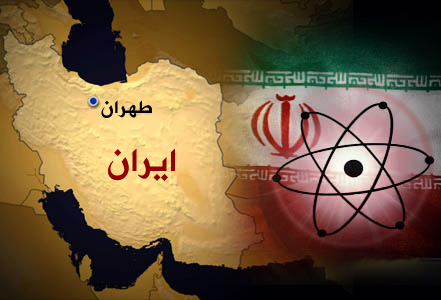 What did the world see as Iran celebrated the 31st anniversary of its Islamic revolution? A hollowed-out regime that is better at repressing its own people than at governing, and that after three decades of fervent belief has reached a cynical middle age.
What did the world see as Iran celebrated the 31st anniversary of its Islamic revolution? A hollowed-out regime that is better at repressing its own people than at governing, and that after three decades of fervent belief has reached a cynical middle age.The Iranian regime's success in intimidating demonstrators was a show of strength, but only superficially. A Lebanese Shiite friend reported that the Iranians were spinning rumors that there would be a bloodbath in Tehran, in hopes of frightening off the protesters. That's hardly a signal of stability and confidence.
But saying something is unsustainable isn't the same as knowing when it will collapse, as we discovered with the financial bubble. That's the tricky problem with Iran: It's a safe bet this regime will eventually break down, but the process could take years, even as Iran pushes toward nuclear-weapons capability. If you want an example of how long a hollowed-out, repressive regime can last, just look at the Soviet Union.
The Obama administration has been struggling with the Iran conundrum -- looking at the range of policy options and, in effect, checking the box that says "all of the above." I think this is the right approach -- a mix of what President Obama warned would be "a significant regime of sanctions," coupled with a continuing invitation to talks.
White House officials argue that their strategy of engagement has been a form of pressure, and the evidence supports them. Compared with a year ago, Iran is far more divided internally; it has lost much of its legitimacy within the Muslim world, with the regional balance of power tipping the other way for the first time in years; and it is more isolated internationally, no longer able to count on Russia as a reliable patron.
Obama's outstretched hand makes sense because it subverts Iran's best propaganda weapon. Without the Great Satan to blame, the Iranians have been accident-prone. Recall the diplomats' admonition: "Never interrupt your enemy when he is making a mistake." That argues for a continued open door to Iran.
The Iranians are well-known in the Middle East for placing multiple bets. This opportunistic approach offers a useful model for Obama: In dealing with Tehran, the United States should place a series of different wagers -- betting on Iranian democracy in the long run, even as we urge President Mahmoud Ahmadinejad to make a deal on the nuclear issue.
In thinking about Iran, it's useful to recall how Washington dealt with the empty vessel that was the Soviet Union. To encourage its eventual crackup, the United States adopted a mix of diplomacy and sanctions; it spoke out about human rights violations, but it never stopped trying to negotiate arms control agreements. Even as it engaged the Russians, it consistently criticized communist rule.
U.S. policy toward the Soviets had one additional noteworthy feature, especially during the Reagan years, and that was its stress on combating Moscow's covert action network. Wherever the Soviets tried to meddle during the 1980s, the United States was there, too. Nicaragua, Cambodia, Angola -- they were small campaigns, but they sent a message. Perhaps we're seeing a bit of that pushback now against Iran, in Lebanon, Yemen, Iraq and Afghanistan.
The Iranians aren't stupid. They read the American press, so they see the stories speculating that a covert program of sabotage by the West may be causing technical problems for the Iranian nuclear program. They understand, too, that the scale of any such sabotage thus far has been limited; the West could make it much more difficult for Iran to continue spinning its centrifuges and assembling highly enriched uranium for a bomb.
The Iranians doubtless also read about America's push to complete a new weapon known as a "massive ordnance penetrator," a 30,000-pound "bunker-buster" bomb that's said to be capable of penetrating 60 feet of concrete. The program was accelerated last October, and the bomb is scheduled to be ready by late this year.
Meanwhile, that nice Mr. Obama assures Tehran: "If you want to accept the kinds of agreements with the international community that lead you down a path of being a member of good standing, then we welcome you." In speaking to a disoriented Iran that is celebrating an exhausted revolution, that's a good mix of policy.
___________________________
The Washington Post (abridged)



